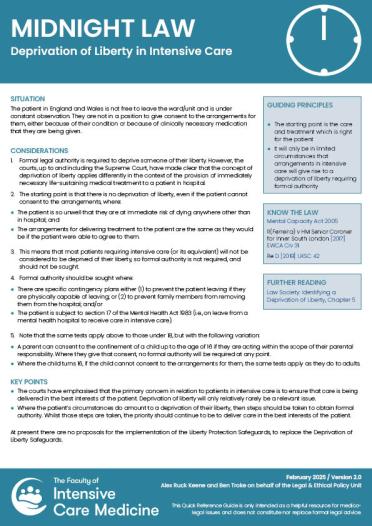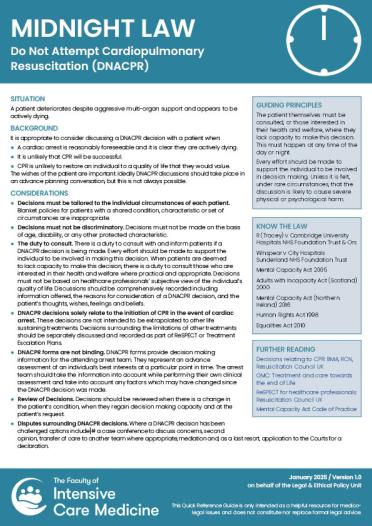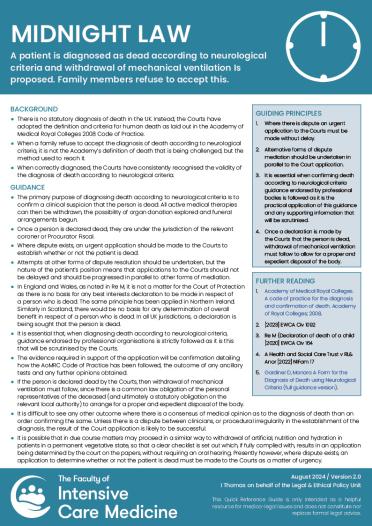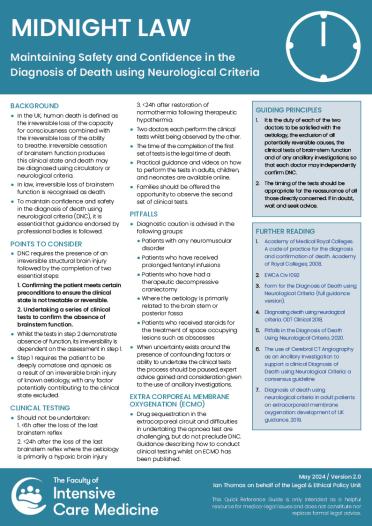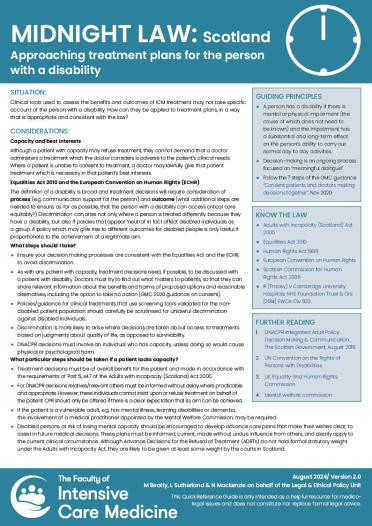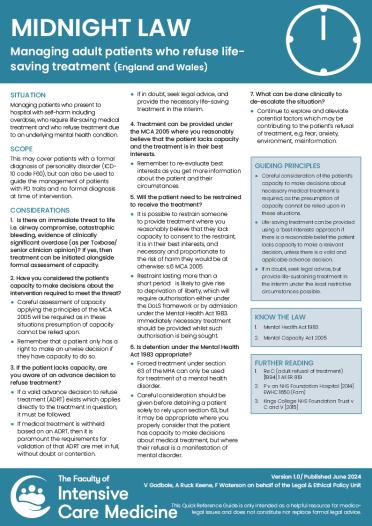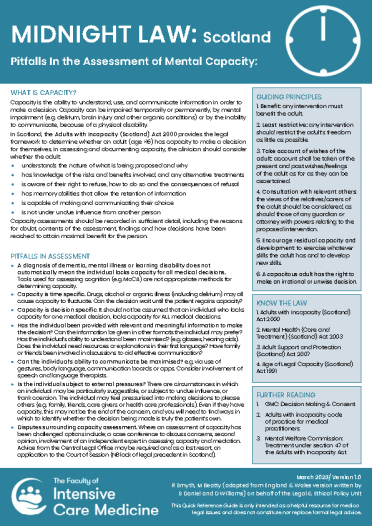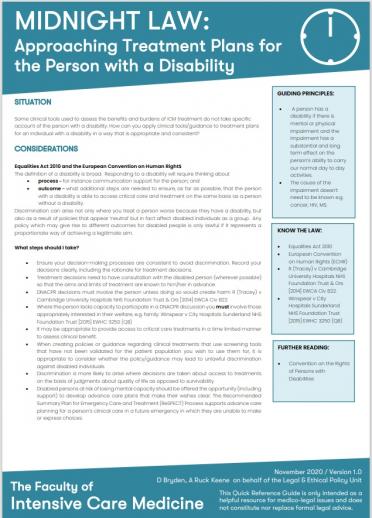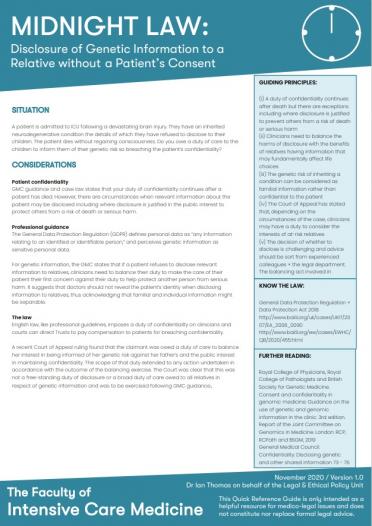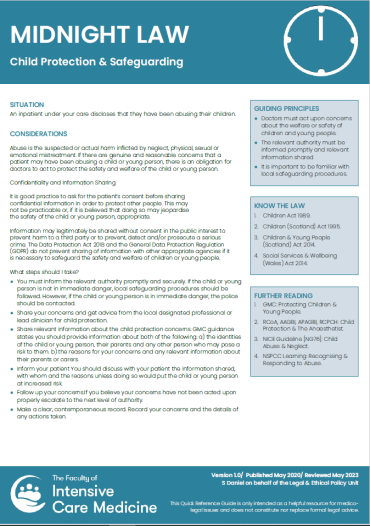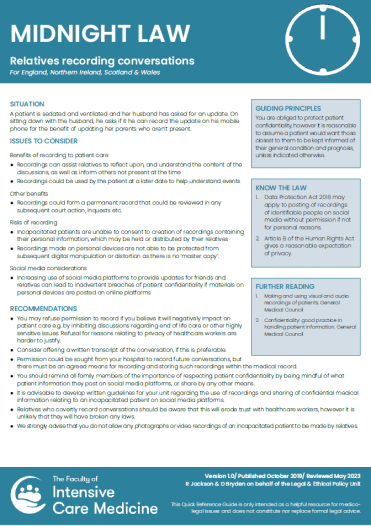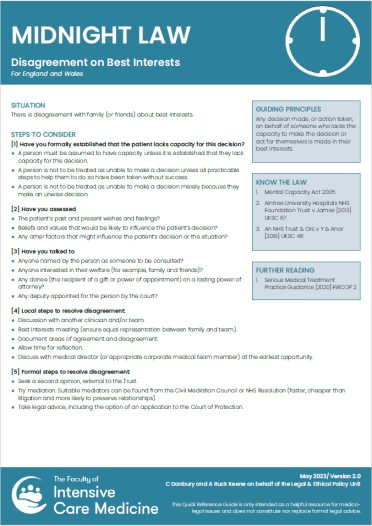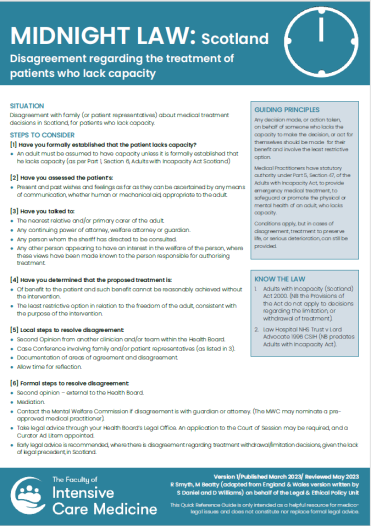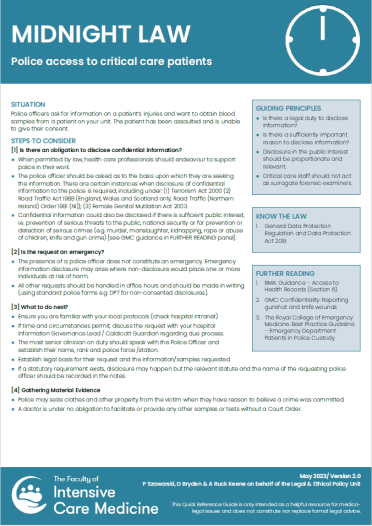Midnight Laws

The Midnight Law series, from the Faculty's Legal & Ethical Policy Unit (LEPU), aims to cover thorny legal issues in a one-page summary that you can access whenever and wherever an issue may arise.
Disclosure of Genetic Information to a Relative without a Patient’s Consent
November 2020
Updated: June 2024
Disagreement regarding the treatment of patients who lack capacity (Scotland)
August 2019
Reviewed: May 2023
Supreme Court Verdict On The Case Of Y
The Supreme Court has handed down its verdict on the case of Y which considers when it is necessary to seek the approval of the court before Clinically Assisted Nutrition and Hydration is withdrawn from a person with a proloned disorder of consciousness. The Supreme Court verdict was there is no requirement to seek court approval. The verdict also broadened to consider the wider question of the withdrawal or withholding of any form of life-sustaining treatment from a person lacking the capacity to consent to or refuse such treatment.
The Legal & Ethical Policy Unit undertook a written legal intervention into the cas which was welcomed by the court for setting the case in the contect of its impact on wider clinical care.
Guidance on the Mental Capacity Act (MCA) and Deprivation of Liberty Safeguards (DoLS)
Following the judgement from the Court of Appeal in the Ferreira v Coroner of Inner South London case regarding Deprivation of Liberty (DoLS) in the ICU, a summary statement has been prepared on behalf of the Faculty and Intensive Care Society. In May 2017, the Supreme Court refused permission to the appellant to appeal in this case.
The judgement pronounced that DoLS does not apply in the administration of life saving treatment, with the exception of very special circumstances. The FICM Legal and Ethical Policy Unit submitted a written intervention as part of the case and consider this a positive development for the management of DoLS within the critical care environment.
Click here for a brief summary of the judgement.
DoLS were due to be replaced by the Liberty Protection Safeguards (LPS), but the implementation of LPS has been deferred until after the next general election, which puts in some doubt whether they will be implemented at all, in their current form. We will provide further updates and guidance in due course
Academy of Medical Royal Colleges (AoMRC) Guidance for Healthcare Professionals: Acting as an expert or professional witness
The guidance was published by the AoMRC following a reccommendation in Sir Norman Williams' Review of Gross Negligence Manslaughter in Healthcare. The guidance is aimed specifically at clinical professionals who provide an expert opinion or act as a professional or expert witness in courts or tribunals.The Faculty also participated on the writing group for the guidance and supports the publication.
Legal & Ethical Policy Unit (LEPU)
LEPU was founded in 2015 as a sub-committee of the FICM Professional Affairs & Safety Committee.
Purpose
- Acting upon legal decisions that require ethical and clinical guidance for the specialty.
- Responding to Section 28 coroner requests.
- Producing publications for journals / newsletters and policy documents on relevant issues.
- Holding fact-finding colloquia in order to inform the above.
- Ensuring the FICM and, where appropriate, its partners are kept abreast of all relevant developments.
- It does not provide expert witnesses for the Court, nor can it comment on individual legal cases of our members or their Trusts.
Do you have an idea for a new Midnight Law?
We welcome submissions from members, either as ideas or drafts in Word for review by LEPU.

